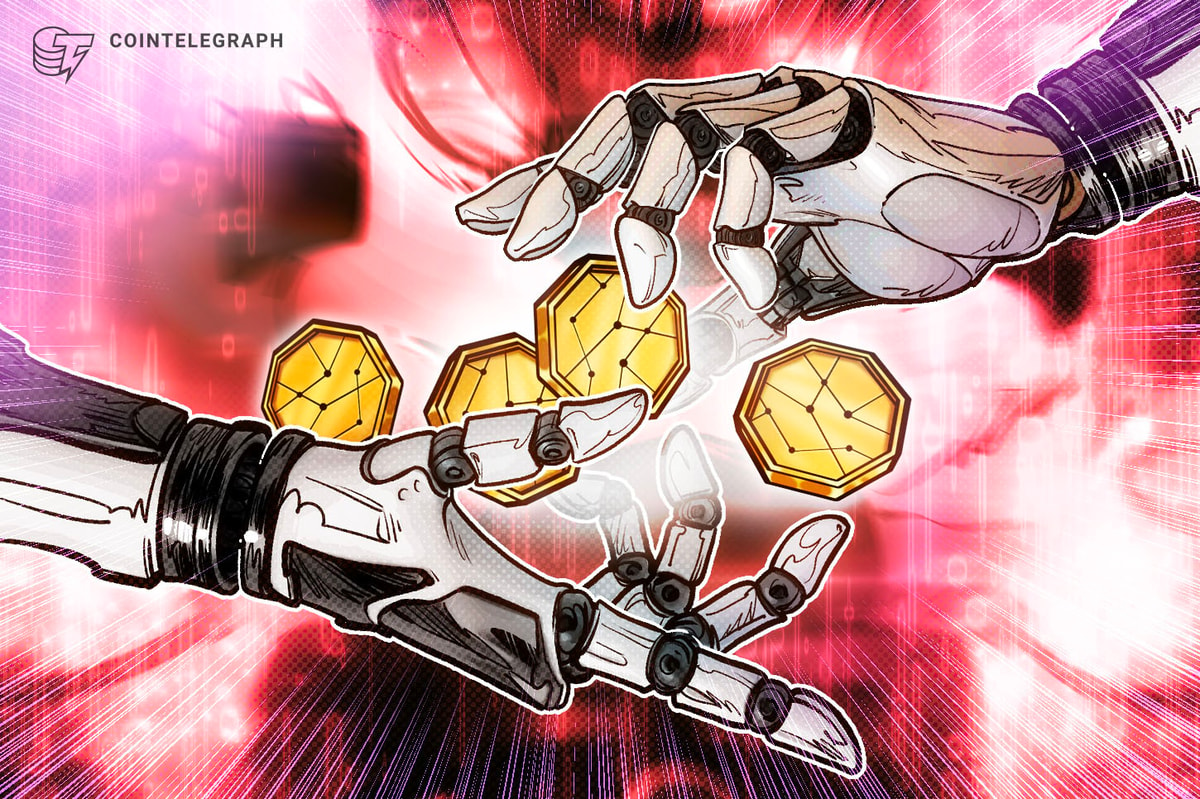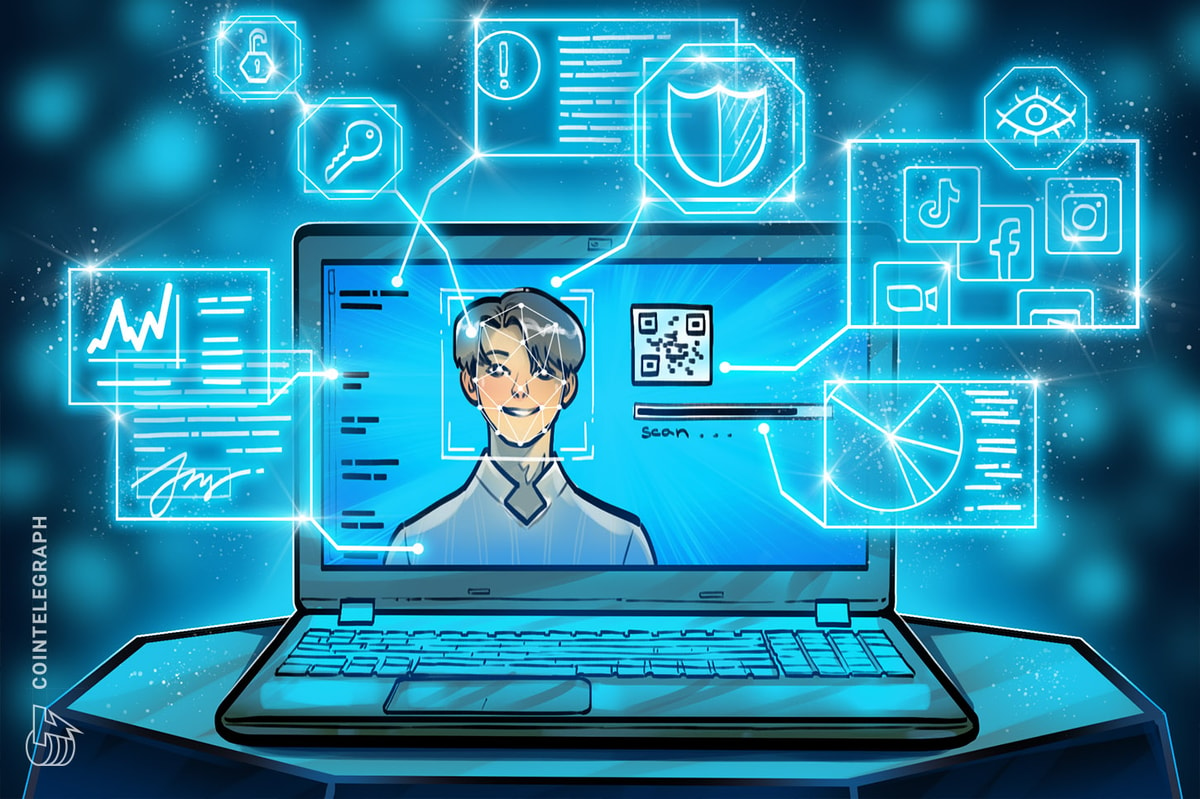Democratizing Artificial Intelligence
Defining Decentralized AI
The intersection of Web3 and artificial intelligence (AI) is rapidly gaining traction, with blockchain technology playing a pivotal role in shaping the future of AI. As the world witnesses the exponential growth of AI, the need for decentralization, transparency, and democratization of AI resources has become more apparent than ever.
Industry experts are addressing the centralization issues in AI development by using blockchain technology to democratize access to AI resources, ensuring fair compensation for contributors, and allowing secure usage of proprietary data, aiming to reshape the AI space toward a more equitable future.
One of the primary goals of decentralized AI is to democratize access to AI resources, including data, models, and compute power. This democratization is crucial as the AI industry grows and the computation costs of large data sets increase, which could otherwise limit the number of entities capable of competing in the space. Decentralized AI uses blockchain and other distributed ledger technologies to prevent a small group of dominant players from monopolizing the AI landscape, thus promoting a more equitable distribution of resources. This approach helps in addressing the problems of centralized AI systems, such as lack of innovation and transparency, by fostering a collaborative environment where contributions from a wide range of participants are incentivized and valued.
Rewarding Contributors In The AI Economy
The rise of generative AI models like GPT-3 and ChatGPT brought to light the importance of fairly compensating contributors in the AI economy. These models rely on vast amounts of open-source data, such as Wikipedia, GitHub, and Reddit, to train and fine-tune their capabilities. However, the monetary benefits generated by these models often fail to trickle down to the original contributors of the data.
In fact, the lawsuit filed by The New York Times against OpenAI and Microsoft highlights the growing unease among content creators over the unauthorized use of their intellectual property. This case points to the broader implications of using copyrighted material without permission to train AI models that might compete with traditional information sources.
Decentralized AI aims to solve this problem by creating a more equitable AI ecosystem. By leveraging blockchain technology, it becomes possible to track and reward contributors for their valuable data and resources. This approach incentivizes participation and fosters a more collaborative and inclusive AI development process where people can be compensated for their contributions.
Proprietary Data And AI Development
While open-source AI has its merits in accelerating model development and promoting transparency, it may not always be the optimal approach for businesses with proprietary data. Industries such as finance and healthcare often possess sensitive information that cannot be openly shared. Decentralized AI offers a solution by allowing these businesses to become part of the development flow without compromising their data privacy, utilizing technologies like federated learning, differential privacy, and homomorphic encryption to securely contribute to AI without exposing sensitive information.
Through decentralized AI platforms, businesses can contribute their proprietary data to build valuable models and access, which others can then utilize to create a web of applications and monetize them. This approach enables businesses to become shareholders in the entire AI ecosystem, earning rewards for their contributions without having to undertake the entire end-to-end process.
Shaping The Future Of Decentralized AI
As the AI industry continues to evolve at an unprecedented pace, the role of decentralization becomes increasingly crucial. The Web3 community has the opportunity to shape what decentralized AI will look like in the coming years. It’s essential to build products that cater to the needs of millions of users outside the crypto space, focusing on simplicity and ease of use.
In my conversation with David Jones, CEO of Athene Network, he shared, “The lawsuit filed by The New York Times against OpenAI and Microsoft highlights the growing unease among content creators over the unauthorized use of their intellectual property. This case points to the broader implications of using copyrighted material without permission to train AI models that might compete with traditional information sources. As the industry evolves, we can expect these challenges to drive stricter regulations and ethical standards, which will be interesting to watch unfold for anyone on the outside looking in.”
As the convergence of Web3 and AI gains momentum, decentralized AI is poised to revolutionize the world as we know it. By democratizing access to AI resources, rewarding contributors fairly, and enabling businesses to leverage proprietary data securely, decentralized AI is paving the way for a future that might make us unable to recognize the turbulent times we’re in today.
Conclusion
Decentralized AI represents a transformative opportunity to reshape the AI space, fostering a more equitable and collaborative environment for data contributors and businesses alike. As Web3 and AI continue to converge, this emerging field is poised to revolutionize numerous industries and redefine the way we interact with our digital world.
FAQs
Q1: What is decentralized AI? A1: Decentralized AI utilizes blockchain technology to democratize access to AI resources, ensuring fair compensation for contributors and promoting transparency in AI development processes.
Q2: How do Decentralized AI platforms address the centralization issues in AI development? A2: Decentralized AI platforms use blockchain technology and distributed ledger technologies to prevent a small group of dominant players from monopolizing the AI landscape, promoting an equitable distribution of resources and fostering collaborative and inclusive AI development processes.
Q3: What is the role of blockchain in decentralized AI? A3: Blockchain technology plays a pivotal role in decentralized AI by securing and verifying transactions, ensuring ownership of AI assets, and providing a transparent environment for data contributors and businesses to collaborate securely.
Q4: How can blockchain technology ensure fair compensation for data contributors in the AI economy? A4: Blockchain technology enables the tracking and rewarding of contributions, incentivizing participation and fostering a fair and equitable AI ecosystem where participants are compensated for their valuable data and resources.
Q5: What are the implications for copyright holders in the AI era? A5: The AI era presents new opportunities and challenges for copyright holders, as AI-powered models may rely on copyrighted content, potentially raising concerns about intellectual property infringement and fair compensation for creators. Decentralized AI platforms can offer solutions by enabling secure and private data sharing, ensuring fair compensation and minimizing the risk of unauthorized use.









